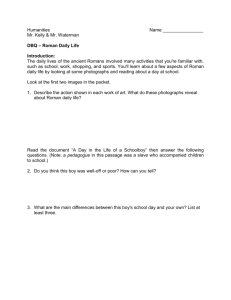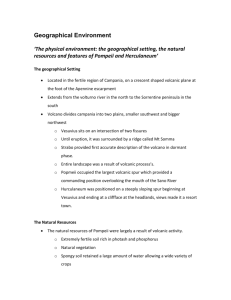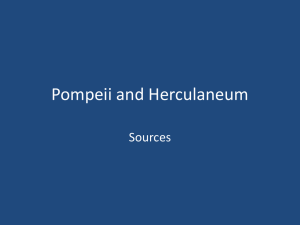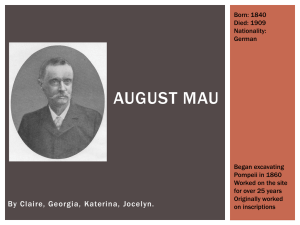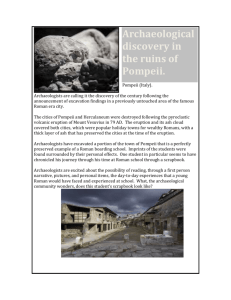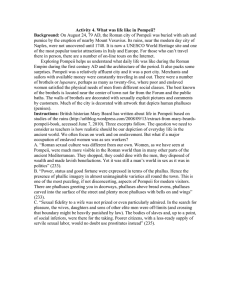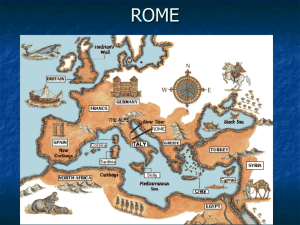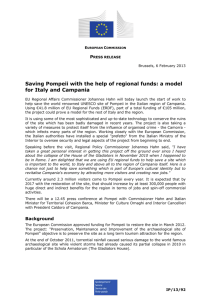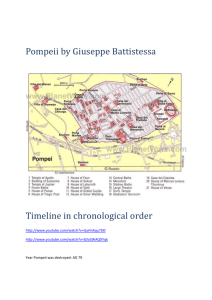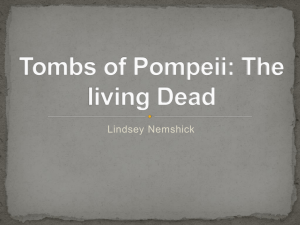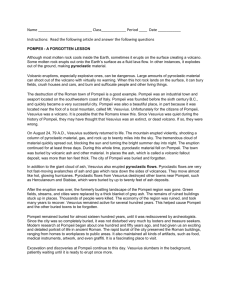PowerPoint Information on Pompeii by Mr. Mygatt
advertisement
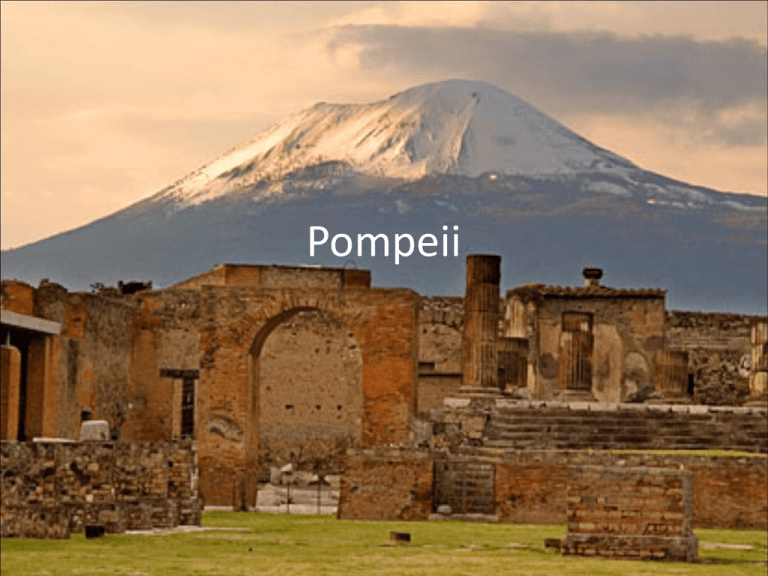
Pompeii History • The city of Pompeii is a partially buried Roman towncity near Naples. Along with Herculaneum, Pompeii was partially destroyed and buried under 13 to 20 ft of ash and pumice in the eruption of Mount Vesuvius in AD 79, and it was lost for nearly 1700 years before its accidental rediscovery in 1749. Since then, its excavation has provided an extraordinarily detailed insight into the life of a city at the height of the Roman Empire. • • • History The town was founded around the 7th–6th century BC by the Oscans, a people of central Italy, on what was an important crossroad and had already been used as a safe port by Greek and Phoenician sailors. In the 5th century BC, the Samnites conquered it; the new rulers imposed their architecture and enlarged the town. Pompeii took part in the war that the towns of Campania initiated against Rome, but in 89 BC it was besieged by Sulla. In 80 BC Pompeii was forced to surrender. It became a Roman colony with the name of Colonia Cornelia Veneria Pompeianorum. The town became an important passage for goods that arrived by sea and had to be sent toward Rome or Southern Italy along the nearby Appian Way. Ancient Pompeii Eruption of Mount Vesuvius • By the 1st century AD, Pompeii was one of a number of towns located around the base of the volcano, Mount Vesuvius • Heat was the main cause of death of people, previously believed to have died by ash suffocation. • The people and buildings of Pompeii were covered in up to twelve different layers of volcanic debris, in total 75 feet deep, which rained down for about 6 hours. Pompeii Today Recommendations • • • • • • Buy a guidebook. Get the official guide from the site bookshop next to the ticket office. Visit also the National Museum in Naples where most of the best preserved mosaics and found items from Pompeii are kept. Have a look at random villas, as sometimes even small side rooms have amazing frescoes (wall paintings). Don't miss the "Garden of the Fugitives" at the south-east side where plaster casts of several victims (sadly, including children) are on display where they originally fell. Walk outside the City Gates to the Villa of the Mysteries, one of the greatest houses to come down to us from the ancient world. Even on a very hot day, it is worth the walk. Ask one of the Archaeologists working on one of the many sites "Hasn't it all been dug?" (there is still 1/3 of the site unexcavated... and there is always more under the floor!)


